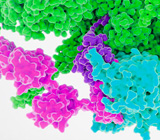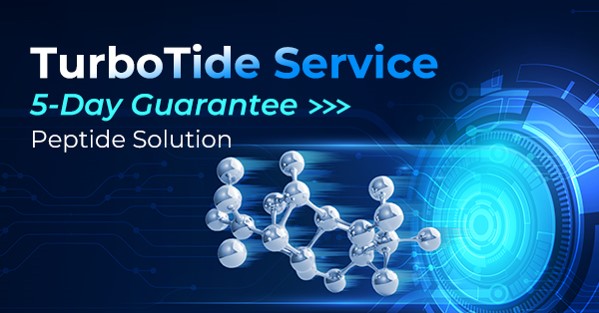-
REAGENT SERVICES
Hot!
-
Most Popular Services
-
Molecular Biology
-
Recombinant Antibody/Protein
-
Reagent Antibody
-
CRISPR Gene Editing
-
DNA Mutant Library
-
IVT RNA and LNP Formulations
-
Oligo Synthesis
-
Peptides
-
Cell Engineering
-
- CRISPR/Cas9 sgRNA
- CRISPR/Cas12a crRNA
- Prime Editing Guide RNA
- Base Editing Guide RNA
- HDR Templates
- gRNA + HDR Template Design Tools
- cGMP Guide RNA
- cGMP HDR Templates
- CRISPR/Cas Proteins
- CAR-T Knock-in Optimization Kit
- CRISPR Plasmids
- CRISPR gRNA Plasmid Libraries
- CRISPR Cell Lines
- Microbial Genome Editing
-
-
PRODUCTS
-
Most Popular Reagents
-
 Instruments
Instruments
-
Antibodies
-
ELISA Kits
-
Protein Electrophoresis and Blotting
-
Protein and Antibody Purification
-
Recombinant Proteins
-
Molecular Biology
-
Stable Cell Lines
-
Cell Isolation and Activation
-
 IVD Raw Materials
IVD Raw Materials
-
 Therapy Applications
Therapy Applications
-
Resources
-
- Pharmacokinetics and Immunogenecity ELISA Kits
- Viral Titration QC ELISA Kits
- -- Lentivirus Titer p24 ELISA KitHot!
- -- MuLV Titer p30 ELISA KitNew!
- -- AAV2 and AAVX Titer Capsid ELISA Kits
- Impurity Test ELISA Kits
- -- BSA ELISA Kit, 2G
- -- Cas9 ELISA KitNew!
- -- Protein A ELISA KitNew!
- -- His tagged protein detection & purification
- -- dsRNA ELISA Kit
- -- Endonuclease ELISA Kit
- COVID-19 Detection cPass™ Technology Kits
-
- Automated Maxi-Plasmid PurificationHot!
- Automated Mini-Plasmid PurificationNew!
- PCR Reagents
- S.marcescens Nuclease Benz-Neburase™
- DNA Assembly GenBuilder™
- Cas9 / Cas12a / Cas13a Nucleases
- Base and Prime Editing Nucleases
- GMP Cas9 Nucleases
- CRISPR sgRNA Synthesis
- HDR Knock-in Template
- CRISPR Gene Editing Kits and Antibodies
-
![AmMag™ Quatro Automated Plasmid Purification]() AmMag™ Quatro automated plasmid purification
AmMag™ Quatro automated plasmid purification
-
![Anti-Camelid VHH]() MonoRab™ Anti-VHH Antibodies
MonoRab™ Anti-VHH Antibodies
-
![ELISA Kits]() ELISA Kits
ELISA Kits
-
![Precast Gels]() SurePAGE™ Precast Gels
SurePAGE™ Precast Gels
-
![Quatro ProAb Automated Protein and Antibody Purification System]() AmMag™ Quatro ProAb Automated Protein and Antibody Purification System
AmMag™ Quatro ProAb Automated Protein and Antibody Purification System
-
![Target Proteins]() Target Proteins
Target Proteins
-
![AmMag™ Quatro Automated Plasmid Purification]() AmMag™ Quatro automated plasmid purification
AmMag™ Quatro automated plasmid purification
-
![Stable Cell Lines]() Stable Cell Lines
Stable Cell Lines
-
![Cell Isolation and Activation]() Cell Isolation and Activation
Cell Isolation and Activation
-
 IVD Raw Materials
IVD Raw Materials
-
![Quick
Order]() Quick Order
Quick Order
-
![Quick
Order]() Quick Order
Quick Order
- APPLICATIONS
- RESOURCES
- ABOUT US
- SIGN IN My Account SIGN OUT
- REGISTER

![Amino Acid Code Amino Acid Code]()
Biology Terms Dictionary
This Biology terms dictionary provides query services for biology and biochemistry terms. Please enter the biology or biochemistry terms you want to search.
List by Alphabet: A B C D E F G H I J K L M N O P Q R S T U V W X Y Z
Industrial Enzymes
Introduction
Industrial enzymes are biological catalysts used to accelerate chemical reactions in large-scale industrial processes. Sourced from microorganisms, plants, or animals, these enzymes provide sustainable alternatives to chemical catalysts. By functioning under mild conditions—such as ambient temperature and neutral pH—industrial enzymes minimize energy consumption and reduce environmental impact. They play vital roles in sectors such as food production, pharmaceuticals, textiles, and biofuels.
Mechanisms of Enzyme Action
Industrial enzymes operate by reducing the activation energy required for biochemical reactions. This section explains the core mechanisms that drive enzyme functionality:
- Substrate Binding and Specificity: Enzymes interact specifically with their substrates through two primary models:
- Lock-and-key model: The enzyme’s active site fits the substrate precisely, like a key fitting into a lock.
- Induced-fit model: The enzyme undergoes a conformational change upon substrate binding, optimizing the interaction.
- Transition-State Stabilization: Enzymes stabilize the transition state of the substrate, reducing the energy required for the chemical reaction to proceed. Some enzymes utilize acid-base catalysis or covalent catalysis, while others depend on metal ion cofactors to enhance reaction rates.
- Enzyme Immobilization for Stability: In industrial settings, enzymes are often immobilized onto solid supports, such as polymer beads or silica, to improve stability and reusability. Immobilized enzymes are more resistant to denaturation, which extends their operational lifespan in continuous processes.
Characteristics and Advantages of Industrial Enzymes
- Thermostability and Environmental Adaptation: Many industrial enzymes are designed to function under harsh conditions, such as high temperatures, extreme pH, or chemical stress. Thermostable enzymes, often derived from extremophilic organisms, remain active at elevated temperatures, which is advantageous in processes such as textile processing and biofuel production.
- Sustainability and Energy Efficiency: Compared to chemical catalysts, enzymes require milder reaction conditions, reducing the need for high energy input. Enzymes are also biodegradable, contributing to environmentally sustainable processes. For example, enzymes used in detergents allow effective cleaning at lower temperatures, conserving energy.
- Tailored Enzyme Engineering: Through enzyme engineering and directed evolution, enzymes can be optimized for enhanced catalytic efficiency, substrate specificity, or environmental tolerance. This customization enables enzymes to perform well under industry-specific conditions, such as high salt concentrations or extreme pH.
Categories of Industrial Enzymes
- Hydrolases: Hydrolases catalyze the cleavage of chemical bonds through hydrolysis. Key examples include:
- Amylases: Used to break down starch in food processing and brewing.
- Proteases: Employed in detergents and leather processing to degrade proteins.
- Lipases: Facilitate fat hydrolysis in biodiesel production and food industries.
- Oxidoreductases: Oxidoreductases participate in oxidation-reduction reactions. Examples include:
- Laccases: Applied in textile bleaching and bioremediation to remove pollutants.
- Peroxidases: Used in paper production and wastewater treatment.
- Transferases and Isomerases:
- Transferases: These enzymes transfer functional groups between molecules and are crucial in pharmaceutical synthesis.
- Isomerases: Facilitate structural rearrangement of molecules, such as converting glucose to fructose in high-fructose corn syrup production.
- Lyases: Lyases break chemical bonds without hydrolysis or oxidation. They play roles in:
- Biofuel production: Facilitating the degradation of complex polymers.
- Polymer synthesis: Forming cyclic or double-bonded products.
Industrial Applications
- Food and Beverage Industry: Enzymes like amylases and pectinases assist in baking, brewing, and fruit juice clarification.
- Textile Industry: Cellulases enable fabric softening, biopolishing, and dye removal.
- Biofuels: Cellulases and xylanases break down plant biomass into fermentable sugars for ethanol production.
- Pharmaceuticals: Proteases and lipases are used in the synthesis of drugs and prodrugs.
- Detergents: Enzymes enhance detergent performance at low temperatures, improving energy efficiency.
GenScript Services and Solutions
GenScript offers a range of tools and services for the development and optimization of industrial enzymes:
- Protein Expression: GenScript provides precise recombinant protein expression services to ensure reliable enzyme production.
Tailored Solutions for Enzyme Purification: GenScript offers custom enzyme modification and purification services to meet the demands of complex industrial processes.
These services accelerate the development of novel enzymes, facilitating sustainable and efficient industrial solutions across food, pharmaceutical, energy, and textile sectors.
Challenges and Future Directions
Despite their benefits, industrial enzymes face challenges such as:
- High production costs: Enzyme synthesis and purification can be expensive.
- Stability issues: Some enzymes lose activity under extreme conditions.
- Substrate inhibition: Excess substrate can impair enzyme function.
Advances in synthetic biology, metagenomics, and enzyme engineering hold promise for overcoming these challenges. Future research will focus on developing more robust enzymes and integrating enzymatic processes into circular bioeconomy frameworks to enhance sustainability.
Conclusion
Industrial enzymes are essential tools in modern biocatalysis, enabling sustainable and energy-efficient processes across industries. With ongoing advancements in biotechnology and enzyme engineering, the scope of their applications will continue to expand, fostering greener practices in food production, pharmaceuticals, textiles, and energy. Enzymes will remain indispensable in the shift toward more sustainable industrial systems.
- Tags:
- Protein
Related Biology Tools
-
GenSmart™ Codon Optimization
GenSmart Optimization is a free online tool for performing codon optimization to improve gene expression. GenScript's patented algorithms are integrated into the tool to optimize the computing capability of high-performance sequence generation.
-
DNA Construct Design Tool
GenSmart™ Design is a free online DNA construct design tool developed by GenScript. GenSmart™ Design has two design modules, the Create Construct module for individual plasmid design and the Create Library module for DNA library design.
-
Codon Frequency Tables
This online tool shows commonly used genetic codon frequency table in expression host organisms including Escherichia coli and other common host organisms.
Service and Products

Protein Expression
GenScript recombinant protein and rAb services provide high quality recombinant proteins and rAbs for a variety of downstream research applications.

Bacterial Expression
One-stop service from Sequence to Protein starting from $1600, 4 weeks.

Insect Expression
GenScript's BacuVance baculovirus expression system was developed by our in-house team of scientists for virus production and expression of recombinant proteins from baculovirus-infected insect cells.

Mammalian Transient Expression
Proprietary High Density (HD) expression system, enhance the protein yield up to 100 fold, achieve antibody titers up to 3 g/L.

Reagents for COVID-19 Research
Gram level, ready to ship RBD proteins, ACE2 assay cell lines and pseudovirus.
-
Top Search
-
Hot Glossary
-
Antibody
If you know of any terms that have been omitted from this glossary that you feel would be useful to include, please send detail to the Editorial Office at GenScript: website@genscript.com
If your term is adopted, we will send 1,000 EzCoupon points to your GenScript account.
-





































